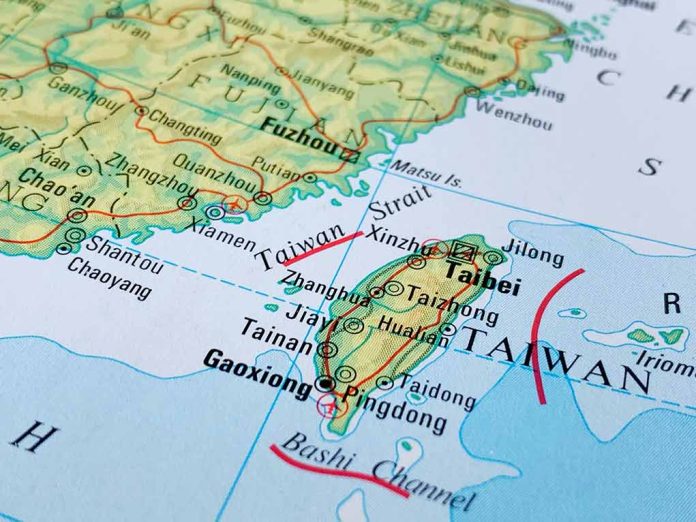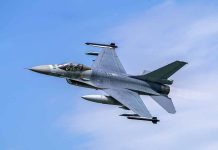
The U.S.’s recent approval of a $385 million arms sale to Taiwan has sparked international attention and diplomatic tensions.
At a Glance
- The U.S. approved a potential $385 million arms sale to Taiwan, including F-16 spare parts and radar systems.
- The defense package aims to maintain Taiwan’s air fleet readiness amid Chinese threats.
- Tensions rise as China promises countermeasures and military drills.
- This is the 18th U.S. military package for Taiwan under President Joe Biden.
Details of the Arms Package
The United States has approved a possible $385 million arms sale to Taiwan, aiming to bolster Taiwan’s defense capabilities. The proposed package includes $320 million allocated for spare parts and support for Lockheed Martin F-16 fighter jets, as well as related radar equipment. Additionally, $65 million is designated for upgraded mobile subscriber equipment, with General Dynamics as the main contractor. The deal emphasizes the United States’ commitment to supporting Taiwan’s military modernization.
Taiwan’s defense ministry has welcomed the arms sale, highlighting its necessity for maintaining their F-16 fleet’s operational readiness. This move comes in the wake of increased military pressures from China, with frequent military aircraft detections near Taiwan. The sale is expected to take effect within a month, according to Taiwan’s defense ministry, aiming to maintain defense readiness and regional stability.
US approves sales of arms worth $385 million to Taiwan: Agency
Read: https://t.co/UWUTOyYqeVhttps://t.co/UWUTOyYqeV
— WION (@WIONews) November 30, 2024
China’s Reaction and International Implications
China’s government has expressed strong opposition to the potential U.S. arms sale, viewing it as a direct threat to its sovereignty and territorial integrity. China’s foreign ministry stated, “The sales seriously undermine China’s sovereignty and security interests, seriously violate international law and send a gravely wrong message to ‘Taiwan independence’ separatist forces.” In response, China has vowed to implement “countermeasures” and has already conducted multiple military drills in the region this year.
The sale comes amid heightened tensions between the U.S. and China, with possible implications for U.S.-China relations. The US Defense Security Cooperation Agency clarified that the sale aims to maintain the operational readiness of Taiwan’s F-16 fleet without altering the regional military balance. This deal marks the 18th military package for Taiwan since President Joe Biden took office, as the U.S. seeks to deter aggression and ensure regional stability amid growing Chinese military capabilities.
US Policy and Taiwan’s Defense Strategy
The approved arms sale aligns with the U.S.’s strategic objectives, reinforcing the commitment under the Taiwan Relations Act of 1979. While the U.S. does not recognize Taiwan as an independent state, it remains committed to arming Taiwan against potential threats. Meanwhile, Taiwanese President Lai Ching-te’s ongoing tour, including stops at U.S. territories like Hawaii and Guam, further fuels the geopolitical dynamics. The U.S.’s latest arms deal comes after a significant $2 billion arms package was approved in October, underscoring continued support for Taiwan amid Beijing’s military pressure.
Taiwan views this latest arms deal as a crucial component in strengthening its military readiness to counter China’s escalating military maneuvers. The sale not only reinforces Taiwan’s defense capabilities but also serves U.S. national, economic, and security interests by supporting Taiwan’s military modernization. The strategic nature of these arms deals helps maintain a balance of power in the region, aiming to deter aggressive actions and maintain peace.
Sources
- US approves $385 million arms sales to Taiwan
- China miffed over US $385 mn weapons sales to Taiwan, vows ‘resolute countermeasures’
- US approves $385 million in weapons sales to Taiwan

















